|
“Hi, Mister Nathan!”
“Heyy! Abdulahi, how are you?” “I am good, Mister Nathan, how are you?” “Great! It’s good to see you!” “What us you driving now?” “Same as before, number 7!” Not the most shocking of exchanges, you’re thinking. At least not at first glance. But when you’ve seen the state he used to be in, constantly, year after year… I remember when Abdulahi first showed up on the Seattle scene. He was usually so drunk he couldn’t keep balance, and whether it was spilling popcorn all over the front half of the bus floor, or collapsing in the doorway and needing to be carried off by enterprising passengers and myself, or passing out in various states of unconsciousness untold numbers of times– Abdulahi was a handful and a half. You sighed when he got on your bus, because it meant you’d be on the radio with the coordinator and filling out paperwork later tonight, as sure as the wheels on the bus go round. But I found it impossible to dislike him. I’ve never seen a happier drunk, and I mean truly happy– not the happy drunk who can tip into anger at one wrongly interpreted word, but a happy man genuinely pleased to see you, who always remembered my name no matter how plastered he was, who never bothered the other passengers, female or otherwise. We were similar in age and temperament, and I like to think we were both resourceful, even if we couldn’t be more opposed on personal health. Because although Abdulahi’s method for surviving may have been annoying, selfish and shortsighted, it was nothing if not clever. Here’s what he would do. 1. The Three-Step Method Step One: get plastered. There’s an art to it, and he knew it; you have to get so plastered that Detox has to come, or Medical has to be called. Other homeless people try to do this but their own attitudes get in the way. Abdulahi has the self-possession to avoid making poor or hurtful decisions during Step One. No one would accuse him of actually being good at holding down his liquor, but somehow he always managed to avoid causing disasters. He also knew the system, or learned it quickly: if you request medical assistance from a civil service employee, they are required to call for that assistance, even with no reason given. Which brings us to Step Two. Step Two is when medical assistance shows up. I knew who Abdulahi was; the coordinator on the radio knew by the description who I was referring to; if police were called, they knew him also; the gents at the fire department and the guys in the detox van and the boys driving the AMR– we all knew him by name. Every person in the chain was familiar with the drill by now. It’s Abdulahi hour. I remember more than one occasion of a medical response team stepping onto my bus with weary bemusement: “Oh, it’s Abdulahi. Here we go again. What’s up, man?” Once I was shown a call sheet. “We’ve admitted this guy to Harborview 32 times in the last two months,” the aid responder chuckled ruefully. You’d overhear the fire department, cops, and ambulance drivers working it out amongst each other: “Can you guys take him to a different hospital tonight? Please? Somewhere way out in the South End? We don’t wanna do this all over again tomorrow, and it’s not like we have room…” They didn’t want another situation where somebody’s grandmother was dying, or somebody’s kid was getting shot, and resources weren’t available because of this. But what can you do? All you can do is Step Three, which is drive Abdulahi to a nice, warm hospital bed, where he can sleep off the alcohol away from the elements, get a free meal and a fresh change of clothes before being sent on his way to do it all over again. It didn’t matter what hospital they took him to. He’d be back in Chinatown in 18 hours. 2. On Surviving Admit it. The man’s got this game figured out. While others in his condition are drinking themselves stiff to avoid feeling cold, or killing themselves with drugs they thought would only numb the pain, Abdulahi’s on another level. He’s in a climate-controlled room with free care, food, clothes, and attention. He’s way past them in enterprising ingenuity. Yes, he may be the most expensive person in King County, and yes, it would actually be cheaper to get him his own one-bedroom apartment and pay market rates for his rent, instead of what we all chip in for his Three-Step method... But ethics are a privilege of those who are doing well. His mandate is to survive, and he prefers sleeping inside to sleeping outside. He prefers hot food to scraps, clean clothes to dirty ones, friendly nurses to angry strangers, being chauffeured to struggling… And don’t you? Wouldn’t you? Survival is necessarily a selfish act. Abdulahi found the paradox of generosity, the loophole of our flawed systems, and he milked it. Someone had to. May as well have been the friendliest drunk on the West Coast. He married his childhood sweetheart at the age of seventeen. He’s a US citizen and proud of it. He’s a sweetheart himself, and never once got angry on my watch, which I find staggering when I consider how much frustration must daily be thrown his way. He’s gone through hardships worse than this. I think of other men I know, ex-child soldiers from Central Africa who now don’t have to kill people, who can instead while away their days drinking with friends who understand them; no money, sure, but no responsibility, no more evil. If that’s not an upgrade, I don’t know what is. You never know the full story. 3. Of Systems and Goodness Abdulahi started life over on the other side of the planet, in a strange land that works to keep black people uneducated, unemployed, angry, and imprisoned. I once read five personal essays by adult immigrant students in a continuing education program at Shoreline College. They were from various countries in East Africa, Asia, and Northern Europe. By coincidence, all five separately mentioned an identical observation in each of their essays. The wording varied, but the meaning was the same: I never thought about my race much, nor has it ever impacted my life to any noticeable degree… until I moved to the US. We are the land of unspoken mysteries, and our problems are coverups for other problems, because Life is complicated, confusing, and many-splendoured. In a place like this, you tread water because it works. All systems are taken advantage by a percentage of their users, and that percentage is always going to be smaller than the benefit that system reaps for those who really need it. Do we abolish voting because it is sometimes fraudulent? Do we suppress compassion because it is sometimes abused? I don’t. And I don’t plan to. The only particularly valuable thing I have to give at the end of the day… is love. I get far more out of trying to be good than the opposite. It’s gotten me in trouble before, believe me, and it’ll likely happen again; but I am all I can offer. 4. Clean-Shaven Revelation And Abdulahi is more than he let on during his Three-Step years. He’s clever, and clever people eventually need more. Should I have been surprised when, after a long period of absence, he reappeared on the 120 and got off partway through the route? You have to understand: non-destination passengers always ride to the end of the line, because they’re not going anywhere. If you get off somewhere long the line, it means you have an actual destination. He got off like he was going someplace, he had paperwork in hand that looked important, and he was wearing clothes that weren’t soiled, torn or stained. He wasn’t drooling anymore than I was. It was a revelation. That was over a year ago. He’s the very same now– sober, neatly groomed, gradually fading from the memories of an ocean of public service responders. I hope they discover how well he’s turned out, because Abdulahi’s rehabilitation represents one of the most genuinely shocking reversals I’ve seen on the street. I do see people turn their lives around, but I never would’ve guessed him. I never would’ve guessed the guy whom I (with his consent) once bodily dragged from the bus onto the sidewalk and into some bushes while wearing dishwashing gloves; who was once so plastered he stood a foot away from my face and innocently yelled, “do you have eyes?” 5. Magic Hour Perhaps I should’ve known from that smile of his, and the razor-sharp memory that could always slur my name correctly. Mister Nathan, he’d say, with a twinkle in his eye. Maybe that twinkle knew what beauty the future held. We look for miracles because we would like to believe in goodness. We would enjoy learning of proofs that render our hopes valid, make worthy our faith. I can think of no greater miraculous and immaculate validation of the possibility of human growth, progression of the soul and body, persistent resilience and rebirth of the best in ourselves… than Abdulahi, Version 2020, chatting me up on Jackson Street, the two of us the most sober people on the block right now. Miracles do happen. Sometimes they are absolutely and unimaginably massive. This is what they look like. A man walking up the sidewalk with clean clothes and a smile.
4 Comments
Every bus driver has experienced this.
There are many reasons people disregard the needs of others. Some are cultural, and some personal, ingrained by role models or lack thereof. Certain folks don't consider others because they are young, and the last part of the brain to develop is also the portion concerned with empathy. It's a survival mechanism; as a child you need to prioritize yourself to survive. Other folks are older but just don't have the brain development. Hard drug use is quite literally brain damage, and if you start using before the age of 25 (the age the brain fully matures), your brain will stop growing.* If you manage to kick your habit before 25, your brain is able to complete development, even if the process is delayed; but if you keep using past 25, your brain will never complete its maturation. For the rest of your life, you'll be wandering around in an adult body but stuck with the emotional capability of a teenager, and you'll wonder why existence seems so much easier for other people. Oh, Life. It can be so forgiving... except when it isn't. Still other people are self-absorbed for less dramatic reasons. They didn't have parenting that encouraged caring or empathy. Maybe they were spoiled. Or they have cultural standards that look dismissive from the outside– differing concepts of personal space or noise, for example. Perhaps they are experiencing crises situations which require focus on themselves; the survival mechanism again. These are the things a bus driver thinks when a passenger is about to get off the back door, but doesn't, because they're talking to their friends and thereby holding up the entire bus. Or when they're scrambling, slowly, to gather their paraphernalia to disembark but are so sluggish you're convinced– convinced– they're taking up everyone's time out of spite. These judgments are too easy. I tend to find myself thinking instead about brain science. With the endless amount of reasons brains can be underdeveloped or unstable, I find this rather more likely than malicious spite or ignorance. Considering the rampant drug use and untreated mental illness here in Seattle, it's more plausible to me that these folks really are operating at the limit of their abilities, which I state not as judgment but as a paraphrase for what I myself try for: the best you can do. For me, recognizing that people differ in ability isn't pejorative but humanizing. No need to hold folks to your standards, or any high standards. They have abilities in other areas, and as J.M. Barrie once wrote, they're all fighting their own battles. We have no idea. So be kinder than necessary. Which is what I attempted with this gent, a stocky fellow holding up the bus now, one foot edging out the back doorway at Prefontaine as he continued chatting with the gaggle of guys seated within. Shaved head, massive headphones with one speaker propped awry, the better to hear his friends; a forty-something brutalist figure with an itch to burn, the sort of restless fury to burn you expect in a younger man. If you just close the door on them, they get angry. If you yell at them, they get angry; and as my colleague Abdi once wisely told me, "If you act tough, they will act tough. And they've got nothing to lose." You do. Which is why getting pissed off never works. Sometimes you can just sit there, remaining silent, and the passengers will enthusiastically do the work for you, New York-style. But tonight I felt like trying the J.M. Barrie approach. "I'm a start closing that back door now," I said. Nothing. "Alright big guy, I don't wanna shut the door on ya..." Still nothing. We'd been there long enough for another passenger– guy in a red jumpsuit– to get off and then wander back and slink on again through the same rear doors. Me, friendly: "Once again, I'm thinkin' about closing those back doors..." At which point Mr. Brutalist stepped out, but also during which one of his buddies growled, "Bus driver, you're starting to piss me off!!" Which is when Mr. Red Jumpsuit leaned toward the speaker and yelled, "HEY THIS BUS DRIVER COOL!! HE LIKE MY GIRLFRIEND!!!" I don't know what the sentence meant, but I knew it was intended as praise, and I could see that it worked. Either I was similar to this man's girlfriend, or I liked her, whoever she was, and that esteemed me highly enough in his eyes for him to defend my character. What it meant was that everything was fine, and Respect, the all-singing, all-dancing high currency of the street, had restored whatever ripples had been brewing. What it meant was contained in my grin of gratitude, and the facial expression of one of the boys in the back: a dead ringer for A$AP Rocky except darker-skinned and friendlier, who looked at me from his position on the back bench, his arm around a girlfriend of his own. He returned my grin with a bigger one, a smiling laugh that was on my side, accepting the humor of the situation, my attitude, accepting the notion of accepting, a casual recognition of the delicate balance of things, the art of it all... How we live now, and have to exist in modern life: Keeping things on an even keel. --- *More on the brain: here's what I wrote in a 2015 post about similar concerns. Selected sources below. "The brain doesn't biochemically mature until a person's mid-twenties. Hard drug use before this age inhibits the development of the neurochemicals needed for the proper formation of multiple brain components, but most crucially for the prefrontal cortex. It's quite literally a case of arrested development. If an individual stops using by around age 24, there's still time for mirror neurons to develop. But kicking a habit is one of the hardest things to accomplish in life, and not everyone can do it that quickly. Addiction is a treatable condition; curtailed brain development isn't. The prefrontal cortex doesn't continue developing after the mid-twenties, and if its growth was prematurely stopped in the years prior, well. There is no undo button in life. The prefrontal cortex is the locus for what psychologists call "executive function": the ability to differentiate conflicting thoughts (good/bad, better/best), extrapolate future consequences of current activities, identify goals, predict outcomes, learn rules at a concrete level, and control behavior to anticipate and avoid socially unacceptable outcomes. The supramarginal gyrus (say that five times fast), also called Brodmann area 40, is strictly speaking located in the parietal lobe but is more generally situated at the junction between the parietal, temporal, and frontal lobes. Area 40 identifies actions and gestures of other people. I mentioned mirror neurons above. Mirror neurons fire when a person acts and also when a person sees an action being performed by another person. In other words, you feel better when the person in front of you smiles, or you care when someone else is sick even though you aren't. The right half of the supramarginal gyrus identifies our emotional state and that of others as distinguishable. It allows us to consider and imagine another's emotional state. Empathy, basically. It overcomes and autocorrects the brain's innate egocentricism (a Darwinian survival mechanism most pronounced in children or in adults without a developed supramarginal gyrus). Now, imagine not having any of that. This is why children are used as soldiers in certain parts of the world. It's a lot easier for them to kill people. It's also why robots are scarier, and why this man, with the faroff gaze and cloudy film in his eyes, is unsettling. 'I saw the best minds of my generation destroyed by madness,' Allen Ginsberg wrote in 1955, and could as well have been referring to all the possible future Raphaels and Marie Curies who, having finally kicked their habit, live out their lives with the emotional maturity of teenagers." Light reading on brain and drug science here and here. Or, if you like, heavy reading here, here, and here. UPDATE: Mr. Inslee has gone forward with exactly the kind of mandate I urge below! Of course I want to believe it was all because of my blog, but, you know, I'm told the world is bigger than that...!! Happy staying at home!
I like people. I really do. As a child I liked animals, like all children, but when I eventually discovered people I knew I could never go back. The wildly imperfect, endlessly incomprehensible human beast, all of them searching in the dark for their version of love, of quality, each of us echoes of each other, something familiar in the glint of every person's eye. It is in that light that I offer these words on our Governor's office. I'm not interested in calling people out, judging them for transgressions real or imagined, or pretending to have the answers. Other folks do all that enough– too much, I'd say. I feel closer to myself when I simply appreciate others; observing and reflecting, trying to learn something about this mysterious life we've been thrown into. I recognize and respect the impetus behind the Inslee office's current resistance to a shelter-in-place order. As he has stated, he'd like to avoid the economic impact if alternate methods prove such a drastic choice unnecessary. I recognize this perspective, but I do not agree with it. COVID-19, like every uncontained virus that has ever existed, infects populations at an exponential rate. One person is infected, who then infects another; those two each infect multiple others and so on. You understand. It's how you get from 444 cases in Hubei Province on January 23rd to 4,903 a week following (1/30)… to a remarkable 22,112 seven days after that (2/6). The same can be observed in Italy, where by now we all know that due to a blasé government response, cases skyrocketed from 888 to 4,936 in 7 days (2/29 to 3/6). Closer to home, it's also how New York registered 4,812 cases in the last 24 hours (a number which will have increased by the time you read it). With this obvious truth easily understood, it baffles me that Washington, the American epicenter of the virus, has been among the most sluggish of U.S. states to react. To spend a week doing not much more than reminding the public to wash their hands is, at this point, morally irresponsible. Cities less compromised than ours have taken greater safety precautions. Why? Because we are at a crisis state where lives are being damaged and lost. We have arrived at, and are now beyond, the point where being overly cautious is something that might be criticized in hindsight. If Inslee is worried about that, he needn't be. The situation is severe enough that unprecedented measures are not only appropriate but expected. The Governor’s office’s hesitancy in taking action might be understandable from an insular view. He urges people to self-quarantine without requiring it. Fine. But there's reality to consider, and the current reality is that people are not doing that. We saw the photos of hordes flocking to Alki over the weekend, and I witnessed firsthand the crowds flooding the Green Lake trails. There was no social distancing taking place– not there, nor in my vast workplace of the street. Not enough. In light of there being a global pandemic underway, our city of which is a major nexus point of infection, these circumstances being legal is irresponsible and unsafe. Now is not the time for half-measures. More concretely, many people (such as yours truly) don't have the option to self-isolate. Numerous businesses are not complying with Inslee's request, for obvious financial reasons, and I don't believe they will unless legally compelled to do so. Their employees might like to stay home, but currently don’t have the luxury. Not everyone in Seattle works in tech. Some of us bake pizza. Some of us pour concrete. Might keeping these employees alive be more important than making a profit? Can we pause? Can we take a second, while science figures this thing out, and perhaps realize this could be the perfect time to experiment with a mode of society besides the current and deeply flawed model? If this doesn’t make us push the reset button, what will? I appreciate Inslee’s optimism in hoping people and businesses would comply with his request. It’s the sort of move I would make as a politician, which is why I’m not one– my glowing trust in the goodness of people has gotten me in enough trouble throughout life already, even if that trouble is vastly outweighed by delightful experiences. But this is one of those moments: we tried, we saw, and we saw what was needed next. The public’s steadfast refusal to self-quarantine forces myself and thousands of other employees around the city to continue to go to work and expose ourselves. At this point it's absurd to assume I don't have the virus. I've been driving visibly sick passengers and others around for two weeks, and have also likely been passing the virus along to others, such as the elderly woman I assisted up the ramp this evening. I wish I could obey the self-quarantine suggestion, but my place of work will not allow it, and continues to require my presence amongst the people. My late-night, non-destination passengers are legion in number, and they don't have access to the resources others have. Subsequently, they have different standards for sanitation, levels of awareness and concern… and of course, no one's testing them. Once they get the virus, everyone gets the virus. Wildfire won't even cover it. We'll need a new vocabulary for how fast it'll spread, because wildfire is what's already happening now. I feel disappointed in the state government's response, which is far too easy to interpret as a lack of concern for its citizens during this pandemic, despite vigorous statements to the contrary. I worry that the current refusal to issue the order will in hindsight be recognized as a catastrophic error, not just because it will severely tarnish Inslee’s otherwise admirable political legacy, but more crucially because it came at the devastating cost of real people's lives and lasting damage to their families. People got infected today because of this, who might not have. People died today. I’m not in a position to meaningfully critique a job about which I know basically nothing. I will not subject Mr. Inslee to the sort of arrogant armchair quarterbacking so many professions have to endure. But I will note my research and observations of the effect his decision is having. Inslee is an ordinary man under extraordinary circumstances, and we can't expect perfect foresight in times like these. He doesn’t have great decisions to choose from. He has only bad decisions at his disposal. He’ll get yelled by some quarter or another at no matter what he does. The question is, what’s the best bad decision that can be made right now? That involves the least least loss of life? I like people. I really do. I like Mr. Inslee, and I like the guys in the back of my bus. I want to see all of us thrive. --- Sources and further reading~ USA Today. "We need an immediate five-week national lockdown to defeat coronavirus in America." By Yaneer Bar-Yam, MIT-trained physicist and complexity scientist who studies pandemics. The Guardian. "China's coronavirus lockdown strategy: brutal but effective." WSJ. "Lockdown of Recovering Italian Town Shows Effectiveness of Early Action." The Atlantic. "You Should Already Be in Lockdown: 'Six feet away' just doesn’t cut it." Al Jazeera. "To get through coronavirus lockdown, we need basic income." Live Science. "How effective are travel bans for curbing coronavirus spread?" The Washington Post. "Limit Travel to Fight Coronavirus? The Pros and Cons." [Image copyright Q13 Fox: crowds at Alki this past Sunday.] Well, everyone else is talking about it. Here I am trying to be extra diplomatic while still being interesting and truthful. The Slate article is derived from an interview that was repurposed into a first-person account; I didn't actually pen those words (as anyone familiar with my writing will quickly glean), but did indeed speak their meaning to the wonderful interviewer. Hope you enjoy.
I write this for my fellow operators; it is they whom I wish to appreciate today, they who deserve the spotlight, more than myself. They continue showing up to work, signing up to spend eight hours daily in quite possibly the most medically compromised public environment imaginable, while the rest of us get to stay at home safe.
1. On Fear and Trembling I look around at my fellow drivers at the base. Here are the young fathers, the single mothers, the elderly... some of them will get infected, against their best efforts, and they will in turn infect their families. If things continue as is, this will become unavoidable fact. It isn't news that life is unfair, but drawing the short stick always comes as a rude surprise. These drivers will continue coming in because they have to, exposing themselves and by extension their loved ones until it is too late. Change tends to happen after things have gone just a bit too far. Who is that operator who will have to suffer, possibly fatally? Are they a friend of mine? Who will accidentally infect their own parents and carry the resulting frustrated guilt for a lifetime? Is it me? Somehow we are able to put aside the possibility of imminent death as we go about living, and thank God/Allah/Mother Nature for that, because otherwise we'd all be frozen out of life's joys by constant fear. I could choose to sink into paralysis as I reflect on how impossible staying uninfected seems on my bus and especially my route, which at night has seen less of a dip in ridership than elsewhere, what with the profusion of at-risk persons who populate the evening 7. 2. Funky Friends Last night Mr. Why Ling unwittingly spewed spittle in my face as he enthusiastically roared, "I'M FAMOUS!!!" I like his absurd comments (and love hearing his unique volume choices in declaring them), and it was the sort of conversation I would've otherwise happily had... but not these days. I just wanted to get him down the street. My sleeper friends with their coughing fits, their soiled clothing strewn on the floor, the careless putrefaction and fluids of alcoholic and bodily origin which keep many of my colleagues rather understandably off the route... Ninety-nine nights out of a hundred, I happen to like these people (this story explains it best). They are part of the fabric of urban life and they're not going anywhere. I've been picking some of them up for a full decade, and I spend more time with them than anyone else and feel totally okay with that. But. These past nights I've found myself wary, heavy with thoughts of trepidation and anxiety. Nothing sickens the soul worse than fear. What has brought me up? 3. Five Giants My fellow operators, that's what. We're in this together, they say with their smiles and waves. Look at young Ali in his trim and spotless Metro jacket, sporting a tricolor taqiyah and aviator sunglasses, the embodiment of youthful professionalism capably navigating his massive E Line down Third Avenue. This is our time to shine, his presence seemed to say. Our ethos. He has optimism for days and much I can learn from. Across the street was Emily, likewise piloting her durable D Line like a total boss, radiating proficiency and cool-headed competence. Seconds later Abiyu would pull up alongside me in his 62. He carries a gentle wisdom I find restorative, a quiet man who thinks before he speaks, whose rich and full-bodied smile that, amongst his reflective quietude, reminds me of my father. His three preteen sons can already each speak four languages; young geniuses following in his footsteps, whom I hope recognize their father's humble pride. I'd just taken my bus over from Kevin, the fine fellow I chat with here. We share in having both spent, by any standard of sanity, entirely too much time driving the 7. We measure our time logged on it in years, and our quips and asides contain volumes I can share with no one else, as we navigate our graduate-level ponderings of how to think about it all. This job is a question of how to think. On my way to Kevin's bus I'd ridden up the street on Tony's 545. Tony the photographer, a man nearly twice my age but with more ebullient courage and humor in the face of life, who has the peace of someone who knows what his passions are: photography and music. I asked him what he made of The Whole Virus Thing. He highlighted the degree to which our work is particularly essential now, and when I mentioned how the 7 hasn't changed much these past weeks, he said, "those are the folks who need us most." Tony also noted that he's blessed with a great immune system (true of all operators; if it wasn't, well, you'd be working somewhere else by now). 4. What You Bring Sometimes all you need is a wave, or one smile, to turn the whole day around. I'd just gotten five rocket boosters infusing my soul: Ali's confident bearing, a man who reminds you it is easy to be beautiful; Emily being herself, that best self we aspire toward; Abiyu's flashing grin, our hands in supplication as we nodded toward each other, the history of our friendship in a gesture; and Kevin and I, proof that goodness and insanity can endure together. "Somebody spilt some beer at the front," Kevin said as he gave me the bus. "But it's all good. " "It wouldn't be the 7 without it!" "Eyy! It wouldn't be the 7 without you!" And Tony, for whom it didn't even occur to complain. Who underlined why we're needed now, and for which crowd; who saw that as innately worthwhile, without irony or complaint. My trainer Gil told us more than once: This system exists to serve, specifically, the very old people, the students, the poor, the homeless, the disabled people. They are your main customers and you should be grateful to them, because they are why you have a job. Selfless, giving, calm; let me take these with me. Let me absorb all the best of these women and men I work alongside. 5. In My Pocket Although it is unlikely I will die from the virus, I am not quite young enough to be unaffected by it. At my age, the likely result is something comparable to a bad flu, along with, of course, infecting those around me. There is debate as to whether the coronavirus is more deadly than the flu (short answer: it's complicated), which kills hundreds of thousands annually and at which we don't bat an eye; and there is of course the fact of driving, the most dangerous regular societal activity and which kills millions and injures millions more... which we do without a second thought. Death is always nearby. Let us remember how to live alongside it, freely. On occasion I ask myself how I'd drive the bus if it were my last chance ever to do so. I'd throw everything I have into it, of course, and that is what I try to do. Whether these are my last days or just more of the in-between, I would like to live them well, and carefully, with joy and intention, carrying the lessons of the folks above in my pocket. I would like to go into the fray smiling, because when nothing makes sense anymore you have to smile. This week's world is a crazy one, and traffic is better now than any time in the last thirty years. It's downright fabulous. If we have to go out there, let's relish it. Who we are, what we can offer, and who we have it on ourselves to be. Thanks for doing what you do. "So how's that 554?" I asked.
Buses are microcosms of the neighborhoods they serve, and the 554 was what this young man was headed toward. That cushy suburban express route with its soft seats and open highways... it seemed a far cry from where we were now, trundling up the bowels of the inner city on a nighttime 7. "How d'you mean?" "Well, do you ride it a lot?" "No, I'm totally new to all of this, actually," he said. "My first time using buses here in Seattle." A younger mixed-race man like myself, with a working-class smile and unassuming clothes, the uncomplicated Seattle wardrobe of blue, black and tan. "Oh, cool!" I replied. "I love that you're using both the 7 and the 554." "Yeah I could already tell, they're so different!" "How?" I love hearing stuff like this. I have my own answer, but I was intrigued at what he might have already noticed, with such little exposure. "Well, as far as I could tell, the 554 drivers... it just seems quieter and more strict. This feels looser and nicer." "Yeah I like this one," I replied. "You get more of everything, the bad and the good. But it all adds up to good, you know?" I was phrasing it poorly, but hoped he perhaps already shared a bit of my philosophy, such that he'd understand what I meant– that the tumultuous mixture of positive and negative life experience seems to add up, when considered afterwards and from afar, as something best defined overall as positive, worthwhile, good. "Yeah yeah!" he said, equally inarticulately, but leaning into a similar view. "I like to think, if it doesn't have something goin' wrong, then it's not fun. Like it's not..." He trailed off, perhaps caught in the place I'd been– stuck for words, dancing around an idea while unable to touch it, but facing a listener who knows your melody. "Like that makes it real, the challenge?" I said. "Yeah!" "Yeah, I think I know what you mean. It's those challenges that make us real people." "Yeah... But I could already tell there's not a lot of drivers that do what you do." "Ha! Yeah, I feel like it's important to make it personable, you know?" "Yeah," "Make it feel equal and human. Like some of those strict drivers on the 554 and stuff, I feel like sometimes they're trying to fight the world, and if you try to fight the world, you're always going to lose!" "Dude.Totally! Better to just stay open and learn something." "It just feels better. Easier." "I couldn't agree more," said an older man who felt compelled to join in. He was dressed to match the surroundings, muted colors faded with time and a sailor's scruffy beard, the kind you know held a thousand stories. I couldn't tell if the peeling discolorations on his face were bruises, a skin condition of sorts, or a trick of the light. Suffice it to say he didn't get off at the 554 transfer point. "To everything you guys just said, your life philosophy," he continued. "I been listening to what you were saying, and I completely agree. If people would just be compassionate towards each other and recognize each other as humans–" "Yeah, flowing with instead of against." "You just feel a lot less lonely." "Ooh, totally. Well said." Talking is what kids do, Charles Schulz once wrote, but a conversation... a conversation is when two adults come together and build a third thing, such that when they part they're slightly different than they were before. That's what we were doing, the three of us. We continued building, recognizing that blanket judgments of drivers or riders or routes were apt to be flawed, that being kind carries dividends as much for oneself as for others, and that, as the Dalai Lama said, choosing optimism just plain feels better. I was reminded of the visual image of red-tailed hawks soaring on those invisible cylindrical thermals of air, together following unseen but palpable currents, paths which to them make so much sense. I felt the exhilaration of simple truths, and the comfort of a worldview that takes life's challenges in stride. It's okay to be unhappy as a bus driver. It's okay to be unhappy walking down the street. I get it. I just try for the opposite. For a moment there, the world made sense to us. We basked in the energizing glow of goodness, at peace with the mysteries of life. I hoped for each of our sakes that our worldviews would hold up when the going next got tough. It's easy to be good when things go your way. But: optimism, my parents told me. Optimism means being comfortable looking at truth even when it's negative. Because that means your life philosophy can handle it. I've got an update regarding Men I Trust's being nominated for Best International Short at the Amsterdam film festival mentioned earlier:
We won. Somehow, folks over there went for it. Bedankt, you guys. What else can I say? Do you know what this means to me?? Three years ago, I was cowriting with my friend Brian Jobe, the author. We had previously collaborated on reediting Regulate, a short of mine shot in 2009 (watch commentary for that project here). Now, in 2016, we were developing a feature-length screenplay I was very excited about: three thirty-minute shorts that would combine to make a feature, each refracting different themes borne out of Jobe's passion and writings on Martin Heidegger. Like anything based on Being and Time, however, it was taking forever. We were getting together week after week at the Veggie Grill, demolishing nachos and stalling. That's when my friend Jeremiah Moon, the musician, suggested I shoot something myself, quick and on the side. Tell me an idea, he said. What would you create on your own right now? I told him what I saw, on another afternoon of us laying about watching David Lynch material. I saw a man and a woman walking in the woods who are not romantically linked; that was the starting point. The woman was Eleanor Moseley, the best actor in Seattle and with whom I was dying to work with again. The desire to collaborate on a second film with her was the lead motivating factor in all of this. I didn't know who the man was yet, nor that it would turn out to be Martyn G. Krouse, the other best actor in Seattle (yes, you can have two bests without contradiction– ask any mother with more than one child!). That we would receive the miracle of actually landing these giants was unknown to me then, of course. For now we just had two people in a forest. Why were they out there together, and what was connecting them? I know a bit about certain aspects of life I've observed but not experienced, but one thing I know I know nothing about is having siblings; they couldn't be sister and brother. This needed to be something else. I've drifted toward the belief that people are most potently defined by what they lack. By what they're searching for. What have you not yet found, which drives you? Is it deeper, and simpler, than you think it is? Every soul on this planet, alone in the waking dawn; the way we sit there, rendered still by feelings that can't be turned into thoughts. What have you lost, the loss of which has made you who you are? How have you chosen to define that loss? What do those moments of searching for that definition, creating it, look like? The most meaningful connection between these two characters, I realized, was going to be negative space. "If I never meet you in this life, let me feel the lack, " a character muses in Terrence Malick's 1998 masterpiece The Thin Red Line. There's no presence like an absence. These ideas tossed about in my head, intriguing but unformed. Then, a month or so later, I found myself driving my car one evening in September 2019. Was it a weeknight? I wish I remember. I was traveling south on 1st Avenue Northeast in Northgate, approaching Northeast 100th Street. It was late enough for it to be dark, for the streets to be largely empty. When it was safe to do so, I executed a left turn at the blinking yellow onto eastbound 100th. The light crossing the Transit Center entrance was a stale green and I proceeded forward, shifting up to third gear. As I passed Third Avenue, I weaved slightly to avoid the damaged pavement and shifted to fourth because why not, it's late. Fifth Avenue Northeast was red. It's always red. The recently repainted stop bar is behind the weight sensor for the light; you have to go over the bar to trigger it, and then roll back (simpler in a stickshift) to the correct spot because even at this time of night, buses will still be rounding the corner onto 100th and need the space. Colored light reflected off pavement. I had a ways to go to my destination; I drifted to the rhythm of the music, distracted into the multistranded, absent-minded present focus that only driving can create. The song playing was La Femme à la Peau Bleue, lyrics by Vendredi sur Mer and production by Lewis OfMan. The heater was on. The music was up. I was alone. The light was still red, and the blinking hand for cross-traffic was still counting down. Before that light turned green, the entire screenplay came to me in a flash. It wasn't my insight; it didn't feel like something I created but something I discovered already exists, that I had not known before. Chris Doyle says Western filmmakers believe in creating the best shot, whereas Eastern directors talk about finding the best shot, of being a vessel rather than some self-contained genius. On this night I was a vessel. It all came tumbling out– two sisters at a nightclub, the French, the quiet young man after an unglamorous job, the conversations later and dimensions they never knew in youth, the touching of new wisdom, new connection, an acquaintance suddenly becoming the most important person, the only person who understands, the trust and teaching and patience and innocent laughter, love that is serious but kind, reflective souls burdened by being human, weighed down with questions this universe refuses to let us in on, questions which define us nonetheless. The thought that you might not want to "get over" something, not now, even if you could. Even if you know it is healthy. I drafted the entire screenplay that night, immediately after the traffic signal turned green. I rushed home as quickly as possible, because this sort of thing doesn't happen any old time, and you've got to grab it when it's real. I hadn't written a screenplay since reading Joan Didion's A Book of Common Prayer in 2008, and had been searching for something to say on film ever since. Here, finally, was the passion. How do these things work? Those details on the road must have had something to do with it, right? Some hidden alchemy of life and light and the soul, the ineffable mixing together with buckled pavement and silent streetlights. The red light facing Fifth Avenue was the starting point for what we have now– a crowd of filmmakers and festival attendees in the Netherlands who must have responded, who chose this over all the other international films there. I think back to the old logo for Landmark Cinemas: a woman's British voice speaking over an image of a spinning globe, sounding equal parts sophisticated and sultry: "the language of cinema... is universal." Isn't it just. Thank you, Amsterdam, for this gesture. You felt a bit of what I once felt at the intersection of Fifth and 100th, and maybe more. Thank you for applauding this attempt of mine to reach you. I need to explain this fully.
1. On Multiplicity "Shutting it down" is overly dramatic. That's not what's happening. But I am changing things, and want to take a moment to explain. June 30 will mark, to the day, eight years of continuous blogging of bus stories by yours truly. Every few days from 2012 onwards, I've written a new story from the streets here on the site, and the following has grown beyond my wildest dreams. I love writing the stories. More than photography, they carry for me the weight of full, bodied accomplishments that take time and consideration to generate. I wrestle with the words, nurture them, playing chess with myself in the search for how to translate life to thought to language. But there are not enough hours in the day to write new stories continuously, write books, read them, promote them, make films, submit films to festivals, work full time, sleep, maintain friendships and relationships and family and health and peace of mind... I'm exhausted, reader. I am exhausted and my active life is probably half over. I do not wish to spend the prime of my existence as a blogger. I love doing it, but it takes more time than the other activities listed above, and thusly prevents my doing those activities as effectively. A blog post– the way I write them– throwing my all into every paragraph, disciplining myself to do my best writing all over again with each new entry– occupies every spare moment of the week. I just published a book and directed a film. I'm tired. I'm happy and I'm thankful... but I'm tired. 2. On Books vs. Blogs Adding to this are two elements unrelated to exhaustion: People aren't reading blogs anymore. Blogs have been dying out for a long time, and I'm glad mine has held on better than many, but the numbers just aren't there in the sky-high ways that used to be– even though readership of my work as a whole is increasing, due to the massive rise in press and awareness I've undergone in the last two-plus years. Far more people know my work than ever before, but they're reading the book more than the blog, never mind that the blog is hundreds of times larger. Which brings me to my second point: Isn't this exactly what you would want? I see what's happened as the ideal scenario. After all, bloggers who manage the incredible luck of getting published don't then abandon their newfound opportunities and humbly return to their Wordpress page. The natural next step is to follow through on the possibilities gifted you by this new playing field. (Plus, as per the recent announcement of my book being picked up, I'll be needing to dedicate more time to promoting it. Such a nice publisher, those folks at Chin Music; I've got to keep 'em happy!!) Thank holy goodness that people are favoring books over blogs. My dream was always to get a book out, because it feels real and tactile, and I get the impression readers feel similarly. Blogs don't "live" in the way books do; books you carry in your hand, carry on the bus and show your friends. Books change your bookshelf, complimenting the other titles and altering the room ever so slightly. Books breathe. 3. What's Next So. This blog will still contain the occasional story, because I'm not going to be able to stop myself from writing these things, but it will transition primarily to a venue for alerting you about upcoming writeups, interviews or events of mine. Look at the last three weeks of posts: they're all alerts for various talks, or updates and news on film screenings. That's the future of this blog– a way for you and I to stay connected. I'll also be sharing more of my photography online. But what about the future of Nathan's bus stories? Hopefully you like them, because I'm going to continue to work on them– but in the context of a future book. Nothing's set in stone, and as hinted earlier, a publisher would need to take an interest, but maybe someday after Lines has had its day in the sun I'll get a chance to have another baby. I've got plenty of ideas already. This will also open up possibilities for films in ways that would be impossible if I kept blogging as before– time can now be alotted for a new screenplay (already underway, actually!), and further attention can be paid to Men I Trust's life on the festival circuit, where it's doing much better than I ever anticipated despite having just entered the field (more on that soon!). 4. On Gloating I don't like talking about my own successes because I find gloating hugely unattractive– to do and to witness. I tend to consider whatever successes my endeavors have had as a mixture of incredible fortune and remarkable goodwill on the part of the people I've known throughout life. I owe my entire being to certain people who have been kind to me. Who were kind when they didn't have to be, but who did it anyway and in so doing taught me about humanity, how to be good and kind and strive to be the best person I can be. No words can adequately express my thankfulness. I wouldn't even know how to take for granted the way your lives have affected me. 5. On Legacies I would rather consider myself an author and filmmaker than a blogger, and I wish to work in those mediums as I continue to share with you what I have. The blog is something I'll be endlessly proud of, endlessly grateful for your enthusiasm and support of it, without which none of any of this would be happening; few things move me more than when I met someone who's read the entirety of the blog. But I feel a need to grow, and hope you can respect that. No one likes an endlessly running TV show that declines in quality as the years pass; but we all love a long film that knows just when to end. With a desire in mind to approximate the latter and not the former, I'll continue to post stories regularly between now and June 30, probably more frequently (I've got a lot I want to share!), and with the hope that it'll be among the best work I can offer. If you like, please enjoy them, share them, and as ever, thank you, for everything. I'm not done yet. I'm just getting started. Just a quick announcement today, to let you know my book has officially been picked up by Chin Music Press (!!!), a Seattle-based publisher best known for their impeccable attention to design and presentation. I feel like my baby's going off to college!
Seriously though, the book seems to have a life and destiny of its own that is beyond me, and less representative of myself than whatever thirst it satisfies in its readers. I was shocked to learn it was more of a bestseller this past holiday season than the one previous, and that it was among Elliott Bay Books' top ten bestsellers... aaaaaand the only title among those bestsellers to be by a local author, debut author, or local press. How did that happen?? It wasn't me. It was you, dear readers, being excited and supportive. For this to have gone through five print runs while only being stocked in (mostly) six bookstores boggles my mind. We were the #1 bestselling book at Third Place Books: Seward Park for their holiday season... because you're wonderful. And I'm still trying to understand how it's worthy of being taught as a textbook at two universities. I wrote the book because I had to. It doesn't seem like it would fit in to today's extremist, loudest-voice-wins-all climate; the round of publishers we queried in New York York certainly didn't think it had a chance. But you're not going to be able to stop humans from responding to kindness, especially in environments where there's a dearth of it. We want what we don't have, what we don't get enough of, and there aren't too many books about the humor and joy and pathos of humans of all demographics finding common ground. (If it sounds like I'm bragging, I promise you I'm not; you know I have to plug this thing, aaaaaand also– whispering here– I'd love to do a– whispering even more– second book– someday, and you never know which publisher might be listening, now that we've proven this thing would've actually made them money... but that's for the future, not now. One baby at a time!) What does Chin Music taking over the book mean? Not much, if you've already read it. But you might see the book in more places, more readily available than it has been, reaching deeper within Seattle and farther out beyond. If you liked the book, pass the word along! Please! It's the only form of advertising that's completely truthful, and I'm grateful and honored that that's been its primary modus of expansion. Thank you. --- Thanks to Seattle Walk Report for the above image. |
Nathan
Archives
July 2024
Categories |
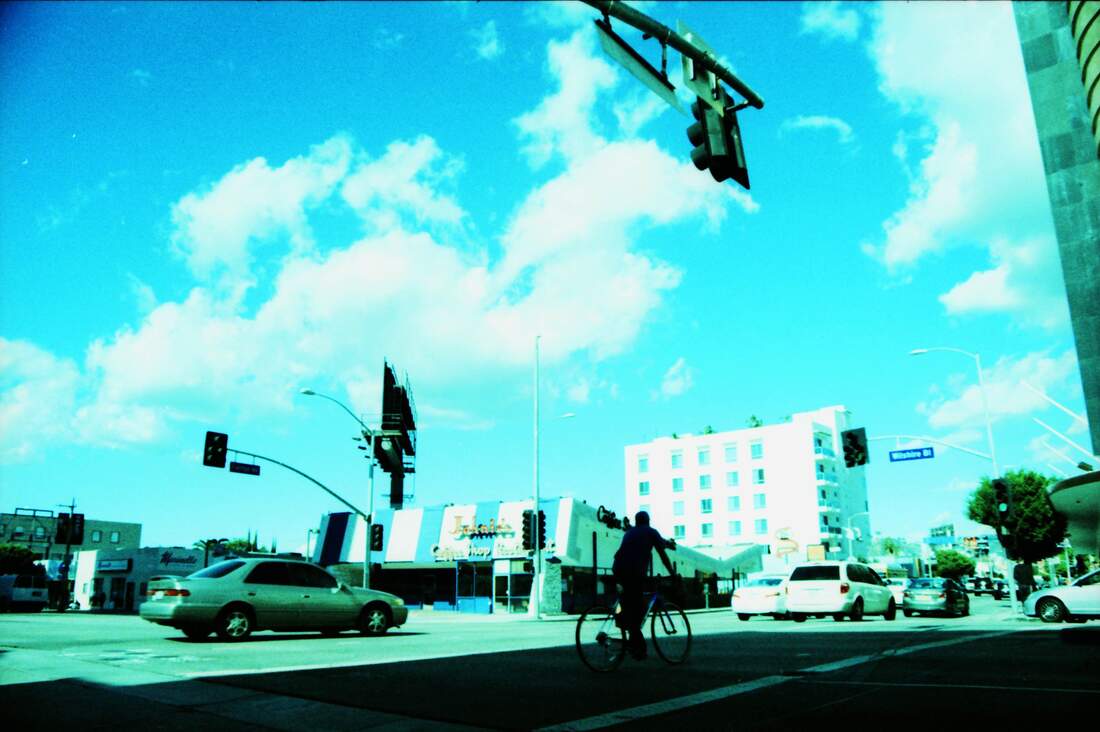
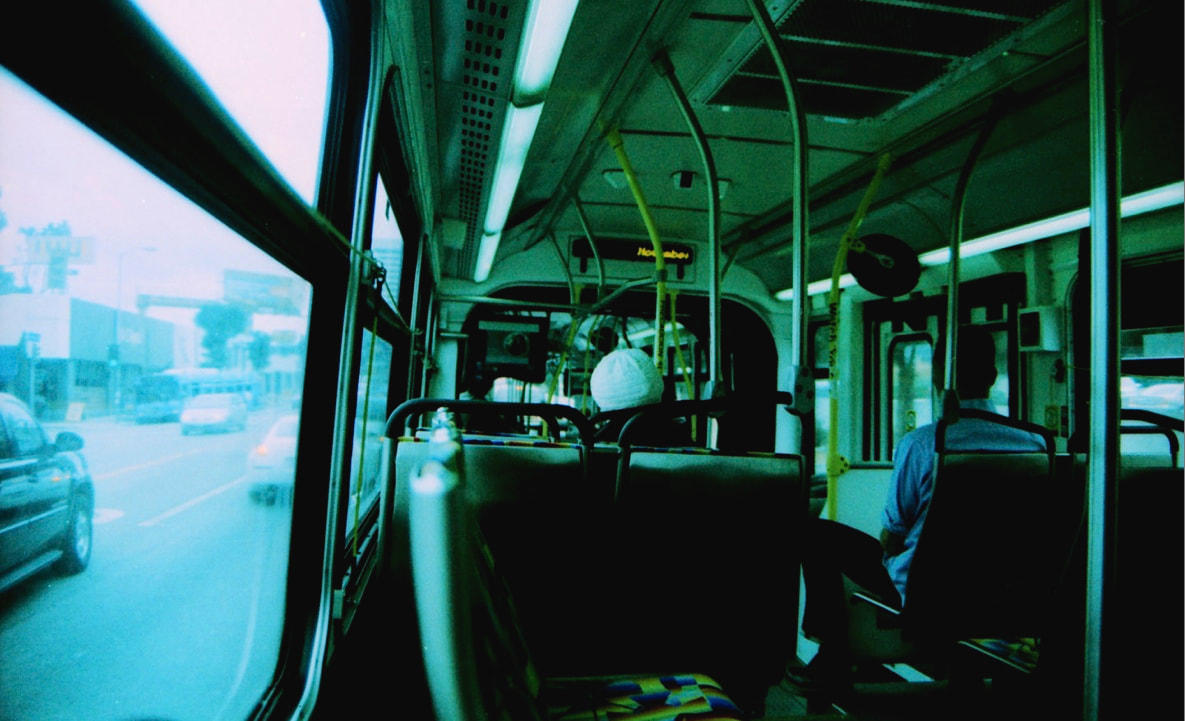
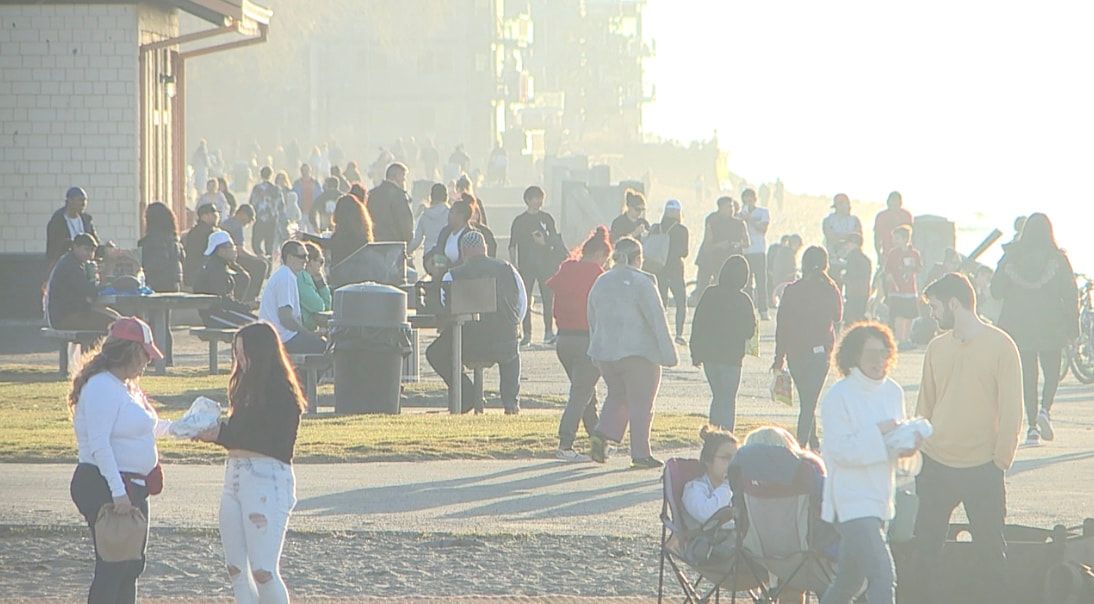
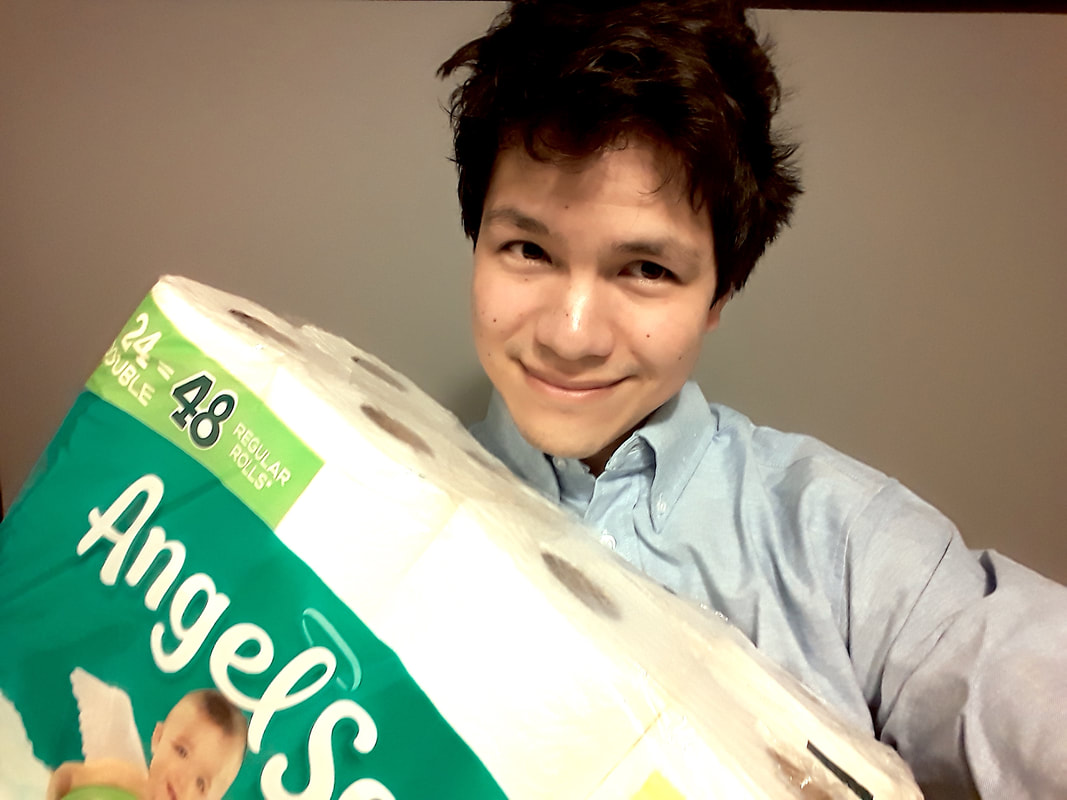
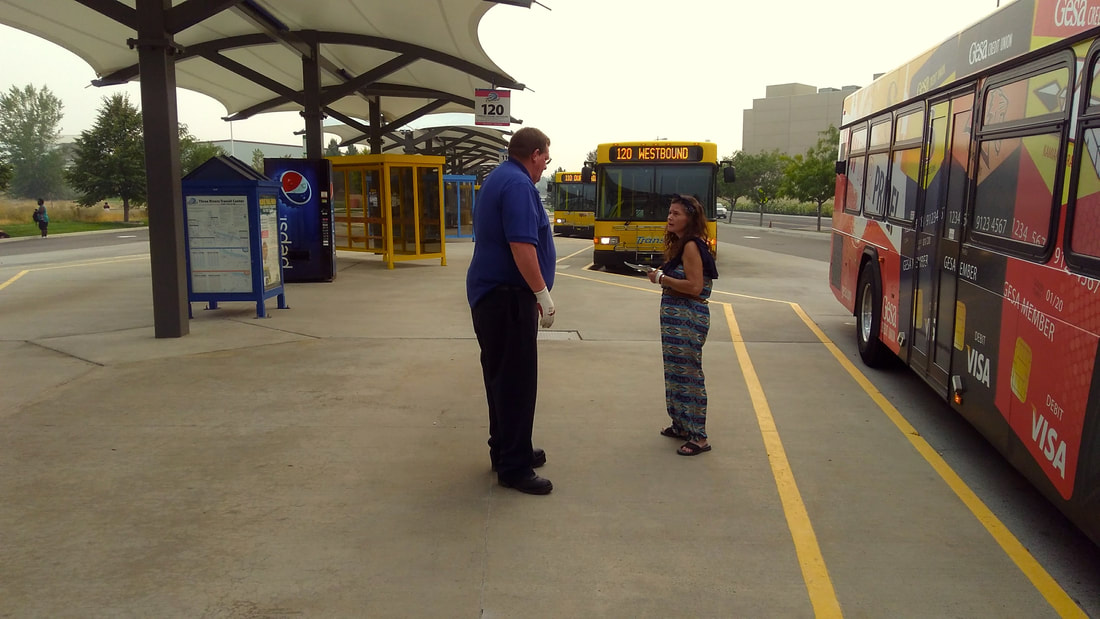
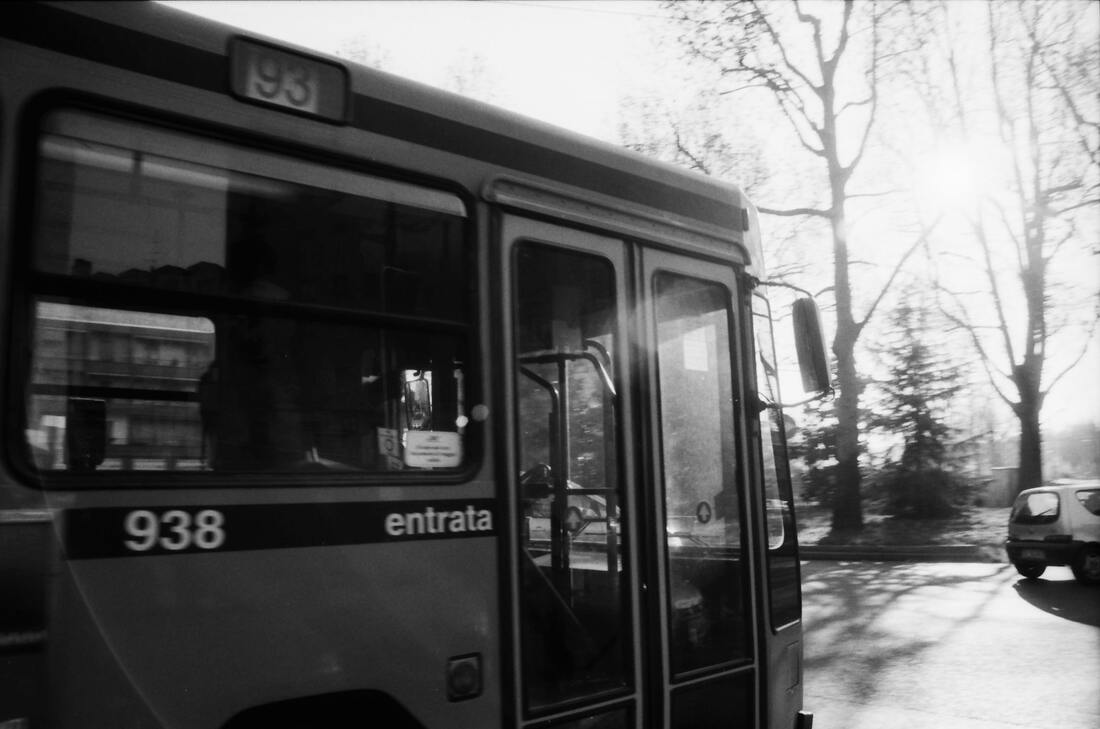
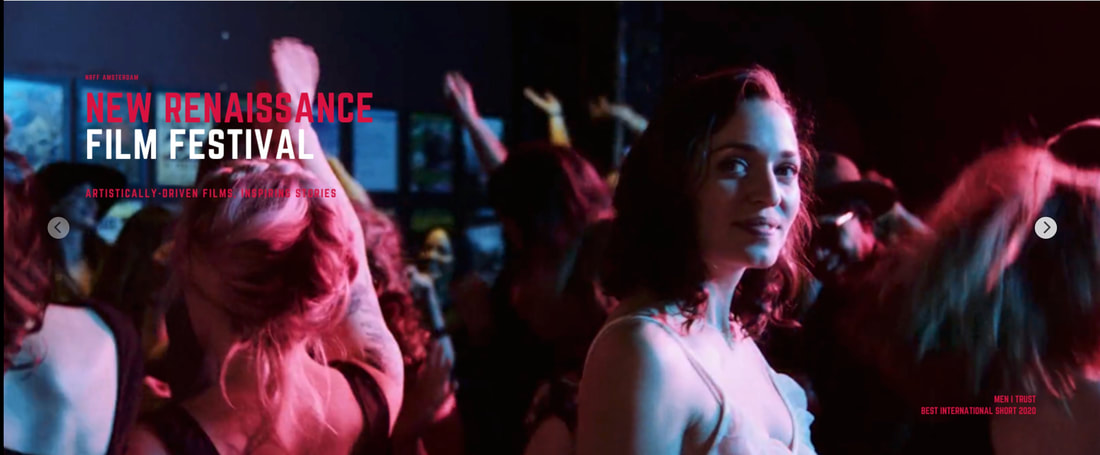
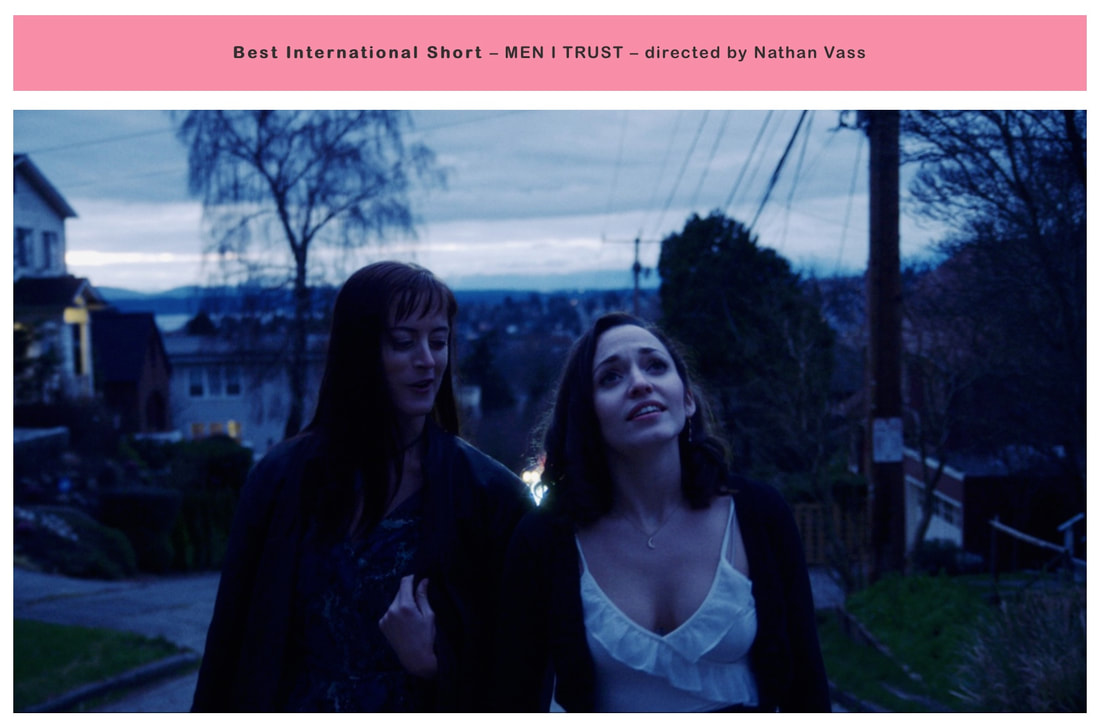
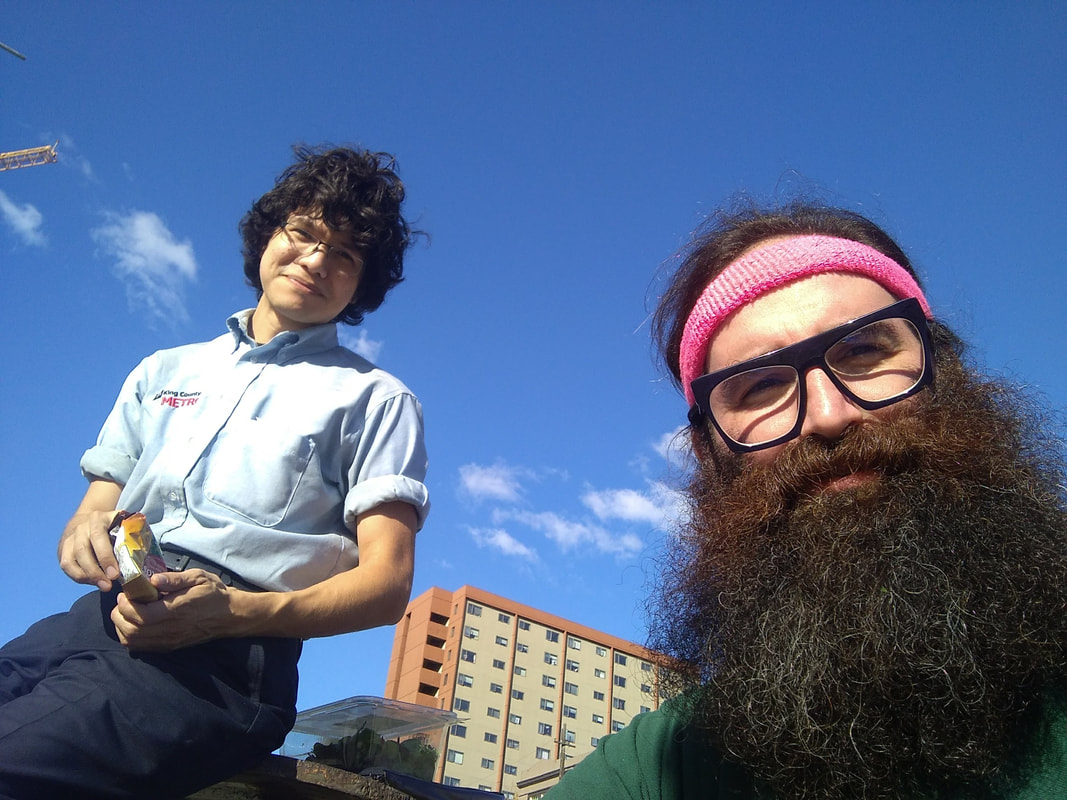
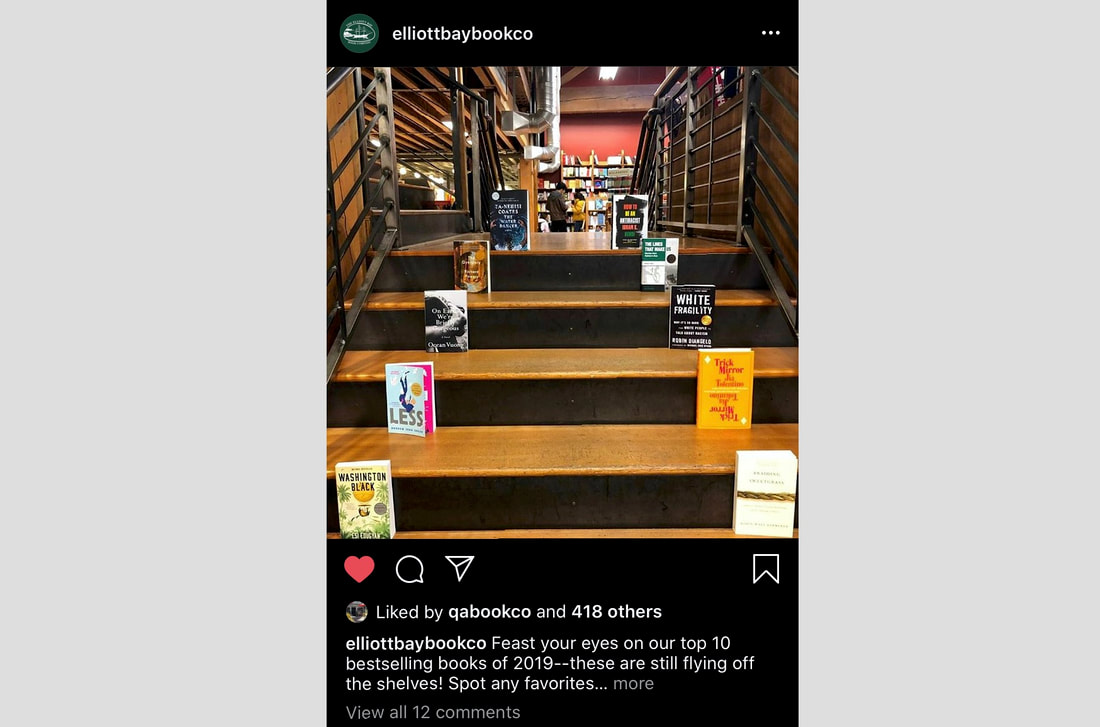
 RSS Feed
RSS Feed
